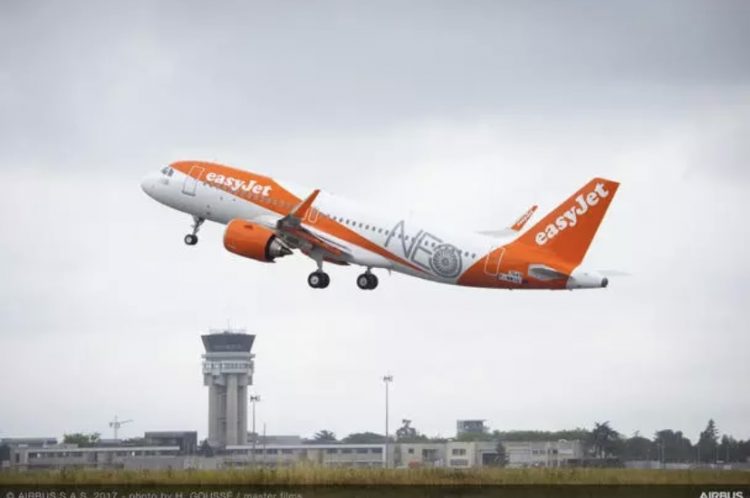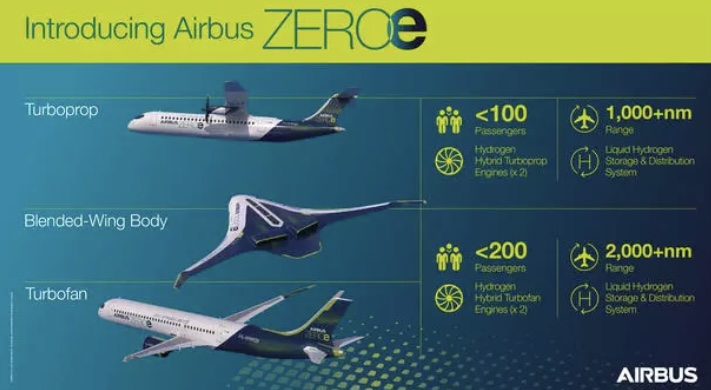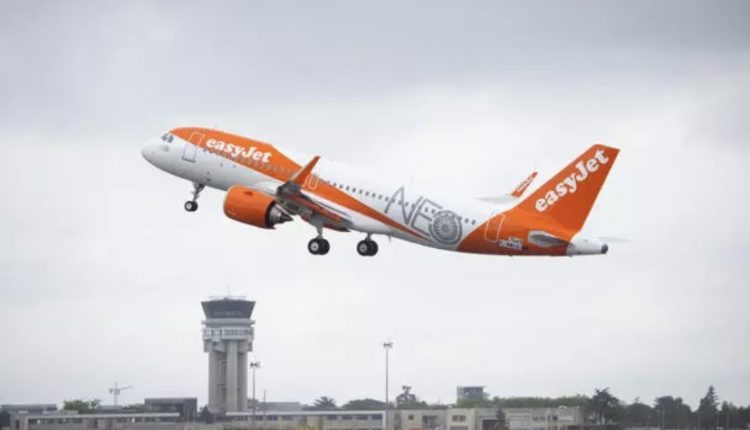Low-cost airline easyJet aims to reach net zero emissions by 2050 and is putting hydrogen-powered aircraft front and centre of its plans. Tony McDonough reports

Aircraft operated by low-cost airline easyJet could all be powered by hydrogen in the next 30 years.
On Monday the carrier, which operates 25 routes out of Liverpool John Lennon Airport, said it was putting hydrogen front and centre of its net zero carbon strategy. It is working with partners including planemaker Airbus and engine maker Rolls Royce on prototypes.
Its aim is to reduce carbon emissions per passenger, per kilometre by 78% by 2050 (vs 2019). EasyJet is also working on a project with Wright Aviation in the US to put an all-electric commercial plane in the air by 2030.
While the hydrogen and electric planes are developed, easyJet says it intends to use more so-called Sustainable Aviation Fuel (SAF) on its aircraft. This, it says, will provide a bridge to zero emissions planes.
SAF is fuel used from a variety of sources including forestry and agricultural waste, used cooking oil. Q8Aviation supplies easyJet with SAF made from what it says is 100% sustainable waste such as used cooking oil and animal fat waste.
The advantage of using SAF in a blend with conventional aviation fuel is that it is ‘drop in’ fuel. This means it can be used with no modifications needed to the engine. It is claimed to reduce emission by at least 50%.
However, SAF is not without controversy. Not only is it more expensive but there are concerns that some imported fuel is produced from non-sustainable sources such as palm oil.
Last year, easyJet was the first airline to operate flights out of Gatwick airport using a mixture of SAF (30% of the blend).
The airline has also signed a Letter of Intent with Airbus to support the development of carbon removal technology. This captures carbon dioxide directly from the atmosphere and then stores it securely and permanently underground.
Special report: How critical is hydrogen to net zero?
Rolls-Royce is shortly to start the first ground tests on hydrogen combustion engine technology for narrow body aircraft. And Airbus has unveiled its proposed ZEROe hydrogen aircraft range.
They include a turboprop model that would carry 100 passengers up to 1,000 nautical miles. It is also looking to develop blended-wing body and turbofan aircraft that could carry 200 passengers, offering a range of 2,000 nautical miles.
On Monday it was also announced that easyJet had reached an agreement to see its entire fleet of Airbus A320’s fitted with Airbus’s descent profile optimisation. This is a fuel-saving enhancement.

There are question marks over the sustainability of hydrogen itself. How the hydrogen is produced is critical. The UK Government is investing heavily into ‘blue hydrogen’. This produces hydrogen by burning natural gas and then capturing and storing the carbon emissions.
HyNet is a £47bn project in the North West of England that will produce hydrogen using this method by 2025. It is building a hydrogen plant at Stanlow in Ellesmere Port and will store the captured emissions in empty gas caverns underneath Liverpool Bay. However, carbon capture and storage has so far never been successfully delivered at this scale.
Best option of all is ‘green hydrogen’. This is hydrogen produced using water and a method called electrolysis. It is powered by renewable energy such as wind or solar. HyNet says its long-term aim is to produce green hydrogen. However, there is still not enough renewables capacity in the UK for it to be viable at scale.
Aviation is coming under increasing pressure to demonstrate it can play its role in reducing carbon emissions and combating climate change. The industry is responsible for around 2% of all human carbon emissions each year.
Johan Lundgren, chief executive of easyJet, said on Monday: “Challenging the status quo is in easyJet’s DNA. From making flying affordable for everyone over 25 years ago, to leading the sector on decarbonisation.
“Today, we’re the first airline to outline an ambitious roadmap in which zero carbon emission technology plays a key role to take us to net-zero emissions by 2050 and ultimately to zero carbon emission flying across our entire fleet.
“Decarbonising aviation is a major undertaking for which the whole sector is coming together. But we also require the support from UK and European governments to help us achieve net zero and we have clearly outlined the actions needed from them.”

